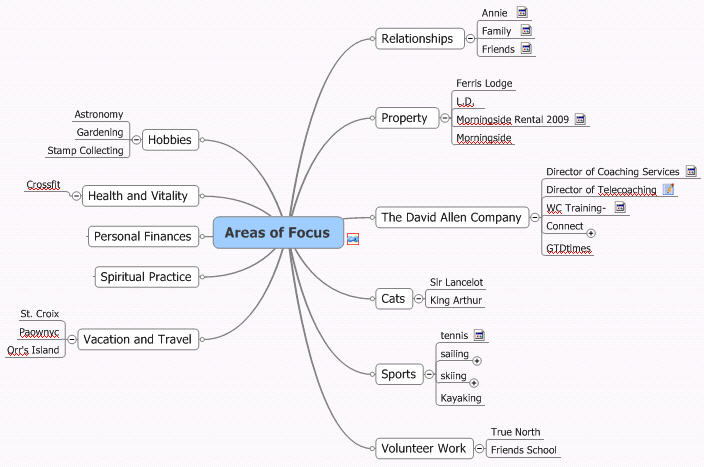Hi GTDers,
How do you manage your Horizons of Focus? I have read DAs Making it all Work and he has a few ideas, but not all of them fit neatly into the list management philosophy that permeates the rest of GTD.
So I would love to see how everyone here has dealt with this and just create a space where we might even be able to check and compare notes on how this has been done.

How do you manage your Horizons of Focus? I have read DAs Making it all Work and he has a few ideas, but not all of them fit neatly into the list management philosophy that permeates the rest of GTD.
So I would love to see how everyone here has dealt with this and just create a space where we might even be able to check and compare notes on how this has been done.

